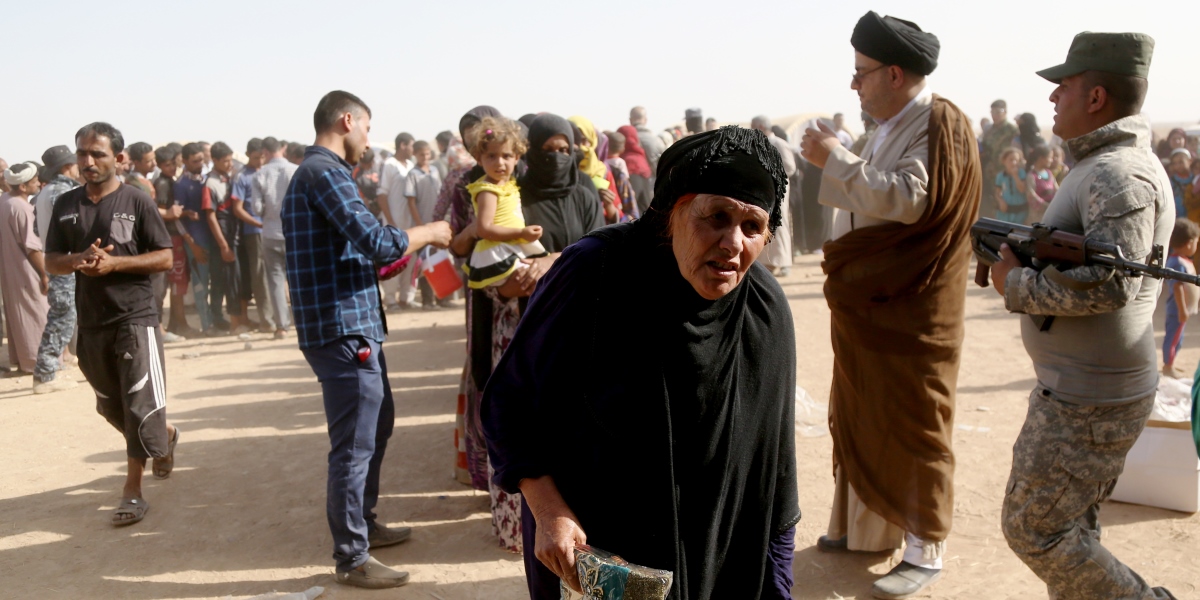Turkey developed a comprehensive counterterrorism strategy to neutralize national security threats. At home, security forces cracked down on the PKK, DAESH and the Gülenist Terror Group (FETÖ). Meanwhile, the government hints that Operation Euphrates Shield is not necessarily limited to northern Syria.
On his return from the G20 summit in China, President Recep Tayyip Erdoğan told reporters that Turkey might help the United States liberate Raqqa from DAESH. He added that his country would play an active role in Mosul. The president's statement was backed by Foreign Minister Mevlüt Çavuşoğlu who maintained that it would take a train-and-equip program for local forces and a number of Special Forces to defeat DAESH in Mosul and Raqqa. The most recent statements raise a few questions about Turkey's strategy: Why is the government eager to target Raqqa and Mosul with a serious confrontation with DAESH in al-Bab around the corner? Wouldn't opening new fronts overstretch Turkey's military?
The government's eagerness is due to the fact that the battlefield transcends the Syria-Iraq border. With civil war raging on in both countries, a complex process of disintegration and unity takes place simultaneously across the border.
Right now, central governments are losing power to sub-state actors and terrorist groups in Syria and Iraq alike. At the same time, DAESH's self-proclaimed caliphate and the PKK-affiliated Syrian armed People's Protection Units' (YPG) pan-Kurdism blurs the border between the two countries. Despite the risk of overstretching its resources, Turkey believes that the right move is to develop a comprehensive strategy to fight both groups.
Turkey, however, is not acting unilaterally. At this time, Turks would like to avoid a conflict with Russia and Iran, while coordinating their actions with the U.S.. Nonetheless, Ankara could take unilateral action to protect its interests as a last resort.
The country's current position reflects the view that the upcoming ground offensives against Raqqa and Mosul will determine the future of Syria and Iraq – both in terms of post-DAESH reconstruction and the threat posed by the Democratic Union forces (PYD) and its armed wing YPG.
According to the government, the creation of a PYD-controlled statelet in northern Syria is an equally serious threat to national security as the PKK gaining control over northern Iraq. Provided that the PKK leadership in Qandil created a lot of problems in the past, the idea that the group would seize control of a stretch of land on both sides of the Syria-Iraq border certainly is not desirable. Believing that the anti-DAESH campaign has reached a crucial stage, Turkey wants to be directly involved in Syria and Iraq.
Moving forward, negotiations between Turkey and the U.S. will be extremely important. At this time, the Turks wants to prevent the liberation of Raqqa from further strengthening the YPG, while objecting to a power grab by the PKK and Shiite militants in Mosul at the expense of local Turkmens and the peshmerga. Turkey also has concerns about the involvement of Hashd al-Shaabi, which is backed by the central government in Baghdad, in the liberation of Mosul. Having trained 2,500 peshmerga fighters and 3,000 volunteers from Mosul in Camp Bashiqa, Turkey might seek to turn the area into an international center – thanks to the rapprochement with Russia and Iran.
The main challenges include: The timing and seriousness of the U.S.'s commitment, the technical difficulties of fighting on multiple fronts, whether the train-and-equip program for FSA fighters and the peshmerga will be successful, avoiding conflict with Russia and the Assad regime, managing tensions with the U.S. over efforts to limit YPG influence and expansion and stopping lone wolf attacks by DAESH.
Long story short: Turkey has no choice but to implement a counterterrorism policy capable of addressing region-wide challenges related to the de facto unification of Syria and Iraq.
[Daily Sabah, September 12, 2016]









